This article was medically reviewed by Luba Lee, FNP-BC, MS. Luba Lee, FNP-BC is a Board-Certified Family Nurse Practitioner (FNP) and educator in Tennessee with over a decade of clinical experience. Luba has certifications in Pediatric Advanced Life Support (PALS), Emergency Medicine, Advanced Cardiac Life Support (ACLS), Team Building, and Critical Care Nursing. She received her Master of Science in Nursing (MSN) from the University of Tennessee in 2006.
There are 20 references cited in this article, which can be found at the bottom of the page.
This article has been viewed 27,771 times.
Everyone farts at night, but that doesn't make it any less annoying. The good news is it's possible to stop farting in your sleep by switching up your nighttime routine and changing your diet during the day. There are also a few over-the-counter medications that can help you stop being gassy at night. A few lifestyle changes, like staying hydrated and quitting smoking, may also help prevent gas.
Steps
Changing Your Diet to Prevent Gas
-
1Increase your water intake before and after meals. Some gas develops because your stomach is having trouble digesting your food, which leads to more bacteria in your gut. In turn, that can lead to more gas. Drinking more water can help your body digest the food faster, cutting back on gas.[1]
- Opt for warm or hot water to speed up your digestion, which may reduce how much gas you experience at night.
- Aim for 15.5 cups (3.7 L) of water per day if you're a man and 11.5 cups (2.7 L) of you're a woman.
-
2Drink as little water as possible while you're eating. Although increasing your water intake overall is beneficial, don't drink very much water during your meals. Your stomach contains enzymes that digest your food, and these will be diluted if you drink a lot of water while you're eating. Since the water makes your digestive enzymes less effective, you end up with more gas.[2]
- If you drink about 16 fluid ounces (470 mL) of water about an hour before your meal, you won't be very thirsty at your mealtime.
Advertisement -
3Skip carbonated beverages with dinner. Carbonated beverages, such as flavored sparkling waters, club soda, and sodas, increase the amount of air in your stomach, as they release carbon dioxide. While you belch most of that back up, your body may hold on to some of it and pass it out the other end.[3]
- Sparkling alcoholic beverages, such as champagne, can also cause problems.
- Beer also causes this issue.[4]
-
4Avoid dairy products if you suspect you're lactose intolerant. If you have a problem digesting lactose from milk products, you're going to have more gas when you eat it. Try cutting dairy out of your diet completely for a week or so to see if that helps your gas.[5]
- Dairy products include milk, cheese, yogurt, and ice cream, but you should also look for it in things like canned soups, frozen dinners, and other processed foods.
-
5Cut out gluten to see if you have a sensitivity. Some people are sensitive to gluten, which is common in wheat products. If you suspect gluten may be causing your excess gas, cut out wheat products, like bread, pasta, and baked goods. Replace these foods with vegetables, lean proteins, and starches that don't contain gluten, like sweet potatoes or corn.
- Don't eat processed foods that are labeled as gluten free, as they usually contain other gas-causing ingredients.
- If your symptoms go away, you may be gluten sensitive. Continue avoiding gluten to keep your gas away.
- If your symptoms persist, gluten likely isn't your problem.
-
6Limit your intake of cruciferous vegetables. Vegetables in this family include Brussels sprouts, cabbage, broccoli, asparagus, and cauliflower, and they can all cause gas when being broken down in your intestines. Try to avoid these veggies, particularly near bedtime, to help reduce your gas.[6]
-
7Decrease your consumption of beans and whole grains to cut back on gas. You've probably heard the jokes about beans causing gas, and there's definitely truth behind the humor! If you want to cut down on gas, avoid eating beans. Some whole grains also cause gas, such as wheat, oatmeal, and bran.[7]
- Skip foods like navy beans, chickpeas, kidney beans, black beans, and pinto beans.
-
8Opt for smaller portions of gas-inducing foods. If you don't want to cut these foods out altogether, try cutting back on how much you eat. Your body may be able to handle a smaller amount without producing too much gas.[8]
Making Lifestyle Changes to Prevent Gas
-
1Eat slowly and take small bites. If you eat too fast, you're more likely to swallow air, leading to gas at night. Make sure to take small bites and chew your food thoroughly before swallowing.[9]
- It may help to set your fork down between each bite.
-
2Take a digestive enzyme with your meals to reduce gas. Supplements like lactase (Lactaid or Lactrase) can help you deal with gas caused by lactose intolerance. Similarly, an alpha-galactosidase supplement (Beano or Bean Relief) can help reduce gas from eating beans. Take these supplements before your meals, as needed.[10]
- Ask your doctor before taking any supplements, especially if you're already taking medication.
- You can find these supplements over-the-counter at your local drug store or online.
-
3Sip out of a glass instead of a using a straw. Straws are also a problem since they cause you to swallow air, contributing to gas. If you don't like getting ice in your teeth, use a lid with a small opening to contain the ice.[11]
-
4Quit smoking to cut back on gas. You probably know smoking is bad for your health. What you may not know is it can also cause gas. Try to cut smoking out of your life, and you may have less gas at night.[12]
- Talk to your doctor about aids that may help you quit, such as nicotine patches, pills, or gum.
- Commit to quitting and tell your family and friends. They can help make the transition easier.
-
5Exercise in the evening to speed up your digestion. Exercising won't necessarily reduce your gas, but it will get things moving if your stomach often hurts from too much gas. Try taking a walk after dinner, for instance, to help slowly release your gas so you won't feel the effects as much.[13]
- Aim for at least 10-30 minutes of exercise in the evenings.
-
6Skip chewing gum, particularly before bed. Chewing gum is a mostly innocuous habit, but it can make you swallow more air, leading to gas. If you need something minty after dinner or before bed, brush your teeth instead of chewing gum.[14]
- Hard candy can also cause problems, as you swallow air while sucking on it.[15]
-
7Have your dentures assessed by a dentist, if applicable. Dentures that don't fit well can make you swallow more air. Talk to your dentist to see if you can get ones that fit better so you won't have as much trouble with gas.[16]
- If you have trouble getting your dentures to stay in, that's a sign they are ill-fitting.
-
8Wear loose-fitting clothing to bed to ease discomfort. While this won't necessarily reduce gas, it can make you more comfortable at night. Tight-fitting clothing can press on your stomach and when it's bloated from gas, that can be uncomfortable.[17]
Preventing Gas with Medications
-
1Try medications that break down sugars before you eat beans or veggies. These medications contain the alpha-galactosidase, and you should take 1-2 pills right before you eat. It will help break down foods that cause gas.[18]
- These medications are especially helpful for foods like beans, vegetables, and grains.
- Common brands include Bean-O and Gas-Zyme 3x.
-
2Use medications with simethicone before bed to break up gas at night. Medications that contain the active ingredient simethicone break up gas already in your digestive system. You can take this at night before you go to bed or after dinner if you prefer.[19]
- Some common brands include Gas-X, Mylanta Gas, and Maalox Anti-Gas.
-
3Take a lactase enzyme if you think you're lactose intolerant. These enzymes come in tablets or drop form, and you typically eat them before you consume dairy. You may also need to continue taking them while you're eating the dairy food.[20]
- If you prefer, you can opt for lactose-free milk products or alternative milk products like soy or almond instead of milk.
-
4Add probiotics to your diet to help with bloating. Probiotics are found in foods like yogurt and kefir, so adding those to your diet may help. You can also take probiotics as a supplement. These supplements vary widely, so talk to your doctor about the best type and dose to take for your particular symptoms.[21]
-
5Take an activated charcoal supplement to reduce gas. Activated charcoal can absorb some of the gas in your system. It's best to take it 3-4 hours after you eat or in the morning. However, avoid taking it right before or during your meals, as it might also absorb some of the nutrients in your food.
- You can find an activated charcoal supplement at a local drug store or online.
- Always talk to your healthcare provider before taking any supplements.
-
6Consume a Triphala supplement right before bed for possible relief. Triphala is an Ayurvedic treatment that may improve your digestive health. It may reduce abdominal pain and bloating caused by gas. However, it may not work the same way for everyone.
- Triphala supplements contain three fruits, including amalaki, haritaki, and bibhitaki.
- Check with your doctor before taking any supplements.
- You can find Triphala in the natural supplements section of your local drug store or online.
Warnings
- While some health sites recommend taking activated charcoal, it can interfere with the nutrients in your body and with any medications you're taking. If you do want to try it, make sure to wait an hour after eating or taking other medications to avoid losing nutrients or decreasing the effectiveness of other medications.[22]⧼thumbs_response⧽
References
- ↑ https://medlineplus.gov/gas.html
- ↑ https://www.livescience.com/36175-gas-busting-tips-prevent-bloating.html
- ↑ https://www.hopkinsmedicine.org/health/wellness-and-prevention/how-to-get-rid-of-gas-pain
- ↑ https://newsnetwork.mayoclinic.org/discussion/home-remedies-gas-belching-and-bloating/
- ↑ https://medlineplus.gov/gas.html
- ↑ https://www.brighamandwomens.org/patients-and-families/meals-and-nutrition/bwh-nutrition-and-wellness-hub/special-topics/gas-beat-the-bloat
- ↑ https://u.osu.edu/buckmdblog/2009/11/15/help-i-cant-stop-farting/comment-page-2/
- ↑ https://newsnetwork.mayoclinic.org/discussion/home-remedies-gas-belching-and-bloating/
- ↑ https://www.brighamandwomens.org/patients-and-families/meals-and-nutrition/bwh-nutrition-and-wellness-hub/special-topics/gas-beat-the-bloat
- ↑ https://www.health.harvard.edu/staying-healthy/gut-reaction-a-limited-role-for-digestive-enzyme-supplements
- ↑ https://www.hopkinsmedicine.org/health/wellness-and-prevention/how-to-get-rid-of-gas-pain
- ↑ h/diseases/7314-gas-and-gas-pain
- ↑ https://www.aboutibs.org/bloating-in-ibs.html
- ↑ https://u.osu.edu/buckmdblog/2009/11/15/help-i-cant-stop-farting/comment-page-2/
- ↑ https://my.clevelandclinic.org/health/diseases/7314-gas-and-gas-pain
- ↑ https://gi.org/topics/belching-bloating-and-flatulence/
- ↑ https://www.aboutibs.org/bloating-in-ibs.html
- ↑ https://www.niddk.nih.gov/health-information/digestive-diseases/gas-digestive-tract/treatment
- ↑ https://u.osu.edu/buckmdblog/2009/11/15/help-i-cant-stop-farting/comment-page-2/
- ↑ https://www.niddk.nih.gov/health-information/digestive-diseases/gas-digestive-tract/treatment
- ↑ https://my.clevelandclinic.org/health/diseases/7314-gas-and-gas-pain
- ↑ https://medlineplus.gov/druginfo/natural/269.html
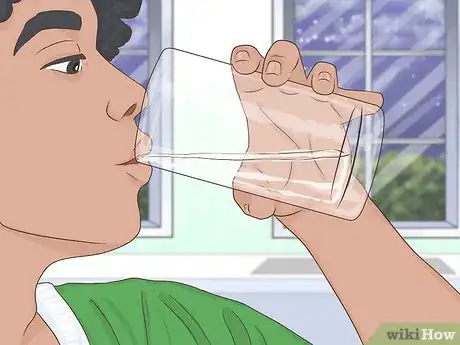
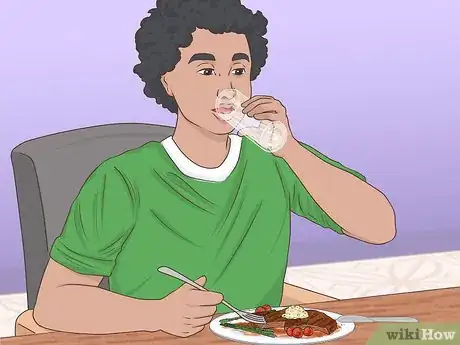
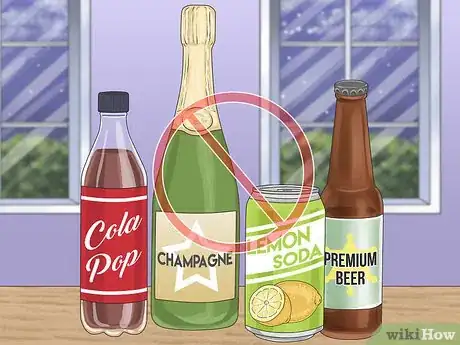
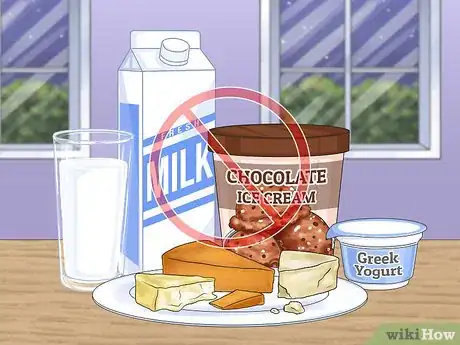
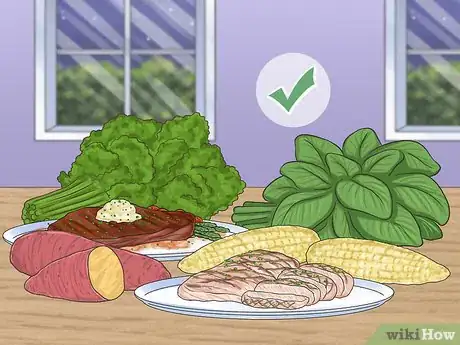
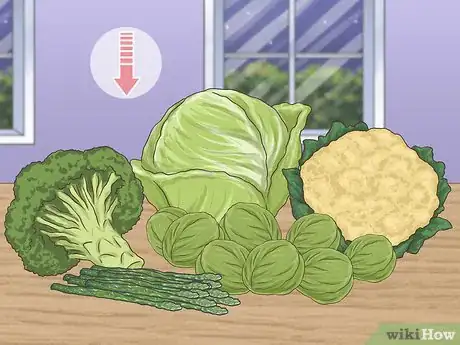
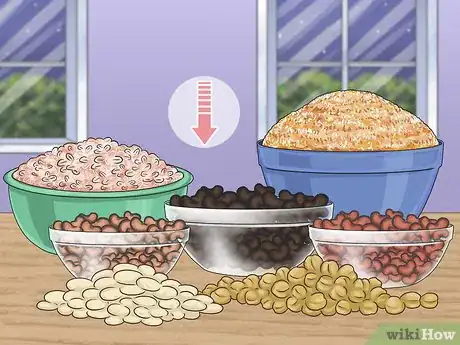
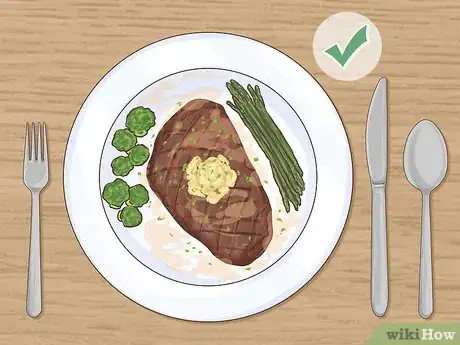
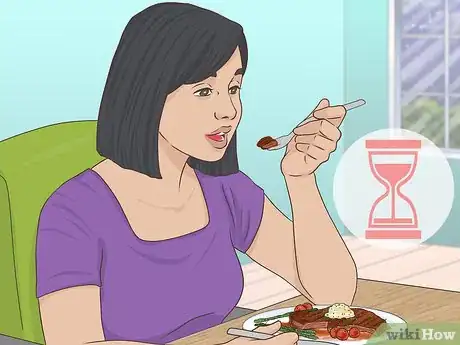
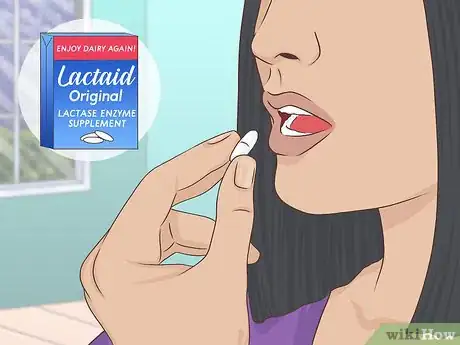
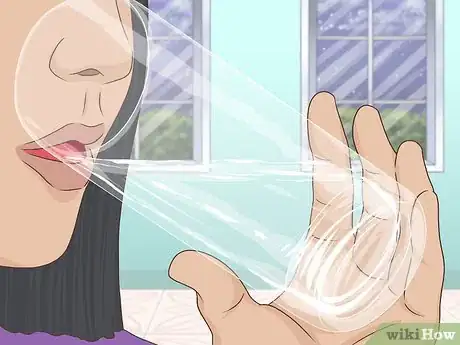
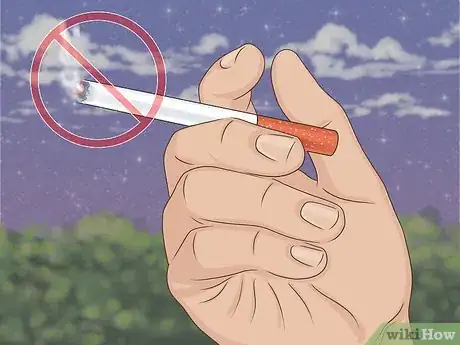

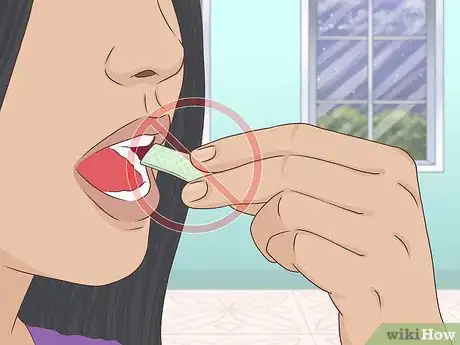
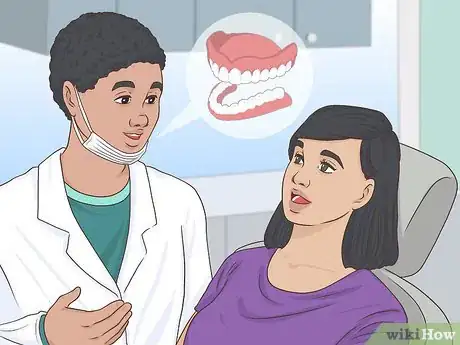

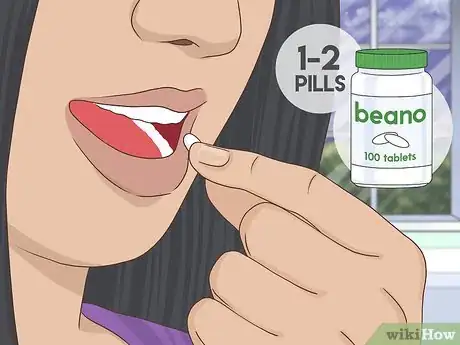
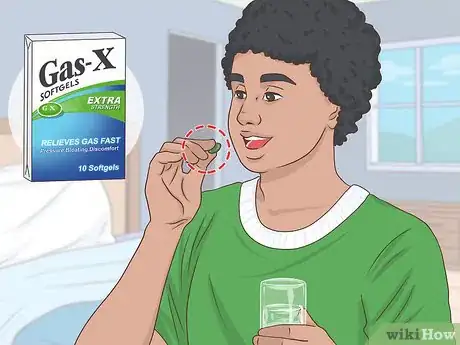
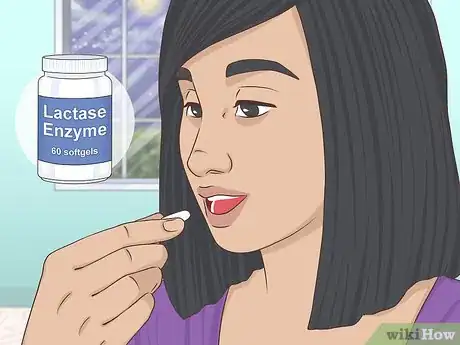
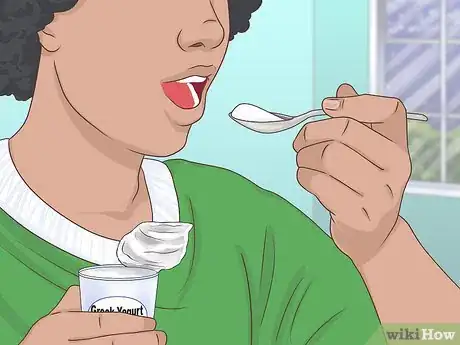
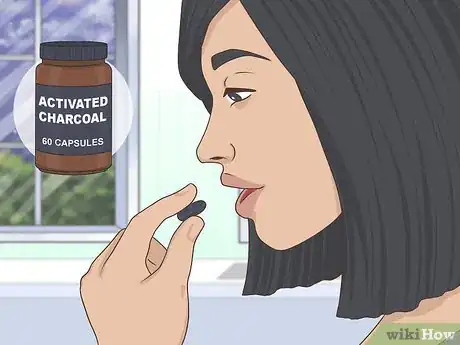
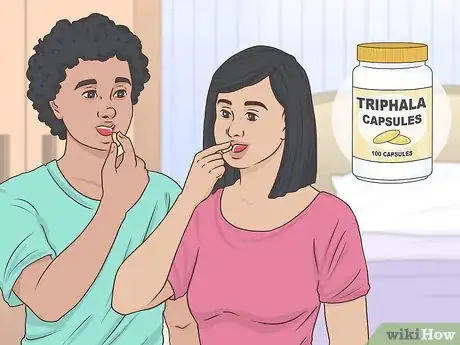

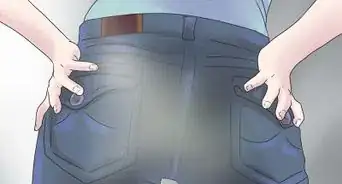
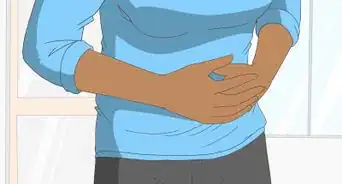
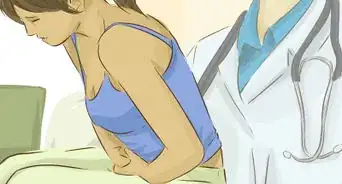

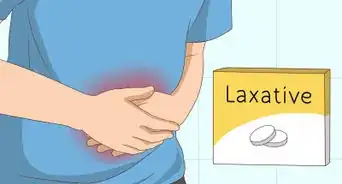

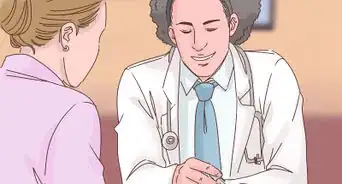
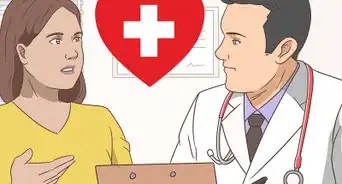
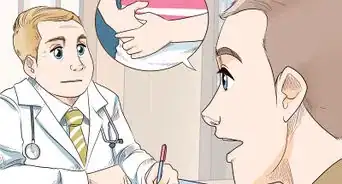









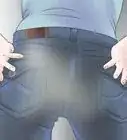





































Medical Disclaimer
The content of this article is not intended to be a substitute for professional medical advice, examination, diagnosis, or treatment. You should always contact your doctor or other qualified healthcare professional before starting, changing, or stopping any kind of health treatment.
Read More...